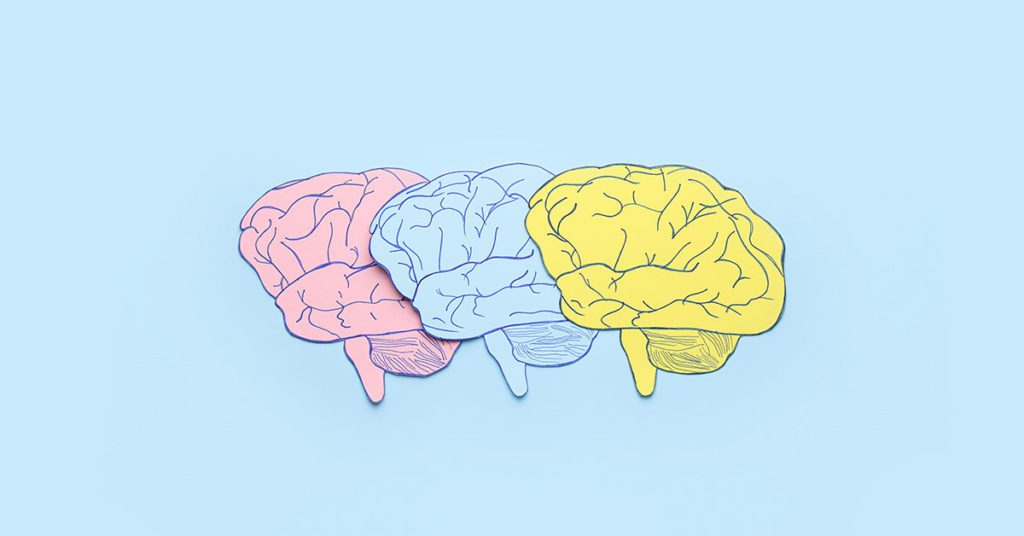


Why Brain Health Matters and Tips to Keep Your Mind Sharp
Just like you take care of your body, it’s also important to take care of your brain. The three-pound organ controls everything from our memory and emotions to our ability to see, breathe, and move. Yet, many of us don’t practice daily habits to protect our brains. So, what makes brain care so important? We’ll explain why brain health matters and everyday tips to keep your mind sharp.
What does your brain do?
The brain is the most complex organ of the body, and in many ways, still remains a big mystery! But, new technology has allowed us to understand how the brain works more than ever before.
Your brain manages your memory.
We rely on the brain to store memory, an essential part of our lives. It enables us to take in information around us, process and store it, and recall that information when we need it. Without memory, we wouldn’t be able to reflect on the past or forecast the future. We couldn’t remember our greatest moments in life, or the experiences shared with our loved ones.
The brain organizes types of memory differently for short-term and long-term recollection:
Our short-term memory includes small amounts of information stored in the prefrontal cortex for a short period, usually between 15 to 30 seconds. The brain either discards that information or saves it in long-term memory. Sensory memory, stored in the temporal lobe of the brain, is stored for a few seconds or less to quickly process your environment; what you see, hear, touch, smell, and taste.
Long-term memory can store large amounts of information, whether it occurred just hours ago or decades prior. The brain stores some long-term memories in the hippocampus but may also store long-term memories in circuits throughout the nervous system.
Consistently taking care of our brains helps protect our memory. It can help slow decline in memory and can lower the risk of developing Alzheimer’s disease or other type s of dementias. You can be more optimistic about your future knowing that you can make new, wonderful memories for years to come.
Brain care for memory:
- Take supplements that support memory like phosphatidylserine, Ginkgo biloba, gotu kola, huperzine A, ashwagandha, choline, magnesium, and DHA omega-3.
- Exercise regularly. Aim for at least 30 minutes of daily movement, outdoors if possible.
- Support memory with healthy nutrition. Neurologist Dr. Dale Bredesen recommends a mildly ketogenic, plant-rich diet combined with a minimum 12-hour fast (including 3 hours before bed).
The foods we eat play a major part in protecting memory with age. So what foods are good for brain health? Learn more about the Bredesen diet, ideal nutrition according to world renowned neurologist, Dr Dale Bredesen.
Your brain allows you to experience emotions.
Love ‘em or hate ‘em, emotions help us experience and understand the world around us. Joy and love help us bond and cooperate with each other. And while they may feel unpleasant, fear and pain help us, too, by protecting us from danger. We can thank our brains for all of it!
We all experience pleasant and unpleasant emotions. That’s a healthy, normal part of life. Consistently caring for our brain helps to balance our emotions, so we feel more content and calm overall. We are better able to stay level-headed when under stress. We can handle life’s challenges and recover from setbacks more easily.
Brain care for emotional balance:
- Take brain health supplements that support a calm, relaxed mind such as ashwagandha, L-theanine, GABA, and lemon balm.
- Sleep between 7-9 hours to help your brain restore and repair at night.
- Practice stress management techniques like mindfulness meditation or deep breathing to stay present and process emotions.
Want to learn more about the role of the brain and emotional wellbeing? Take a deeper dive to discover what part of the brain controls emotions.
Your brain enables you to learn new things.
They say, “you can’t teach an old dog new tricks.” Well, that’s not always the case! In fact, new observations on brain function show that we can all learn new “tricks” and change our daily habits at any stage of life. It just takes some repetition.
The brain is a dynamic, flexible system that can change and rewire itself. Repeated actions can literally change your mind by redirecting the neural pathways in the brain—a concept known as neuroplasticity.
Neurons in the brain communicate with each other by sending signals to each other along neural pathways. You can think of neural pathways like a dirt path. During the early years of development, neurons begin to send and receive signals. The back-and-forth signals act like a truck over a dirt road: as they repeat, they pave deeper pathways making it easier and easier for signals to travel back and forth.
As adults, repeated actions continue to create new neural pathways. You can pave the way for new skills, like learning a foreign language, playing an instrument, or sticking to healthier habits. As you repeat a skill, physical changes happen in the brain, enabling you to get better and better through practice. You can also support the “paving” of neural pathways through healthy habits that stimulate cell growth and activity.
Brain care for learning:
- Take supplements for brain health, like coffee fruit extract, huperzine A, and magnesium which promote the growth of neurons.
- Practice hobbies that stimulate the brain, like brain games, reading, puzzles, learning a new language, or playing an instrument, to promote new neural pathways.
- Stay socially active, as socializing stimulates attention and memory and helps strengthen neural networks.
Your better brain health journey starts now.
No matter where you find yourself on your brain health journey, it’s never too late to start! Even small changes can make a big difference at every stage of life. As you repeat new healthy habits, brain care becomes second nature, like washing your hands or brushing your teeth! Sticking to these healthy habits causes physical changes to happen in the brain that support better memory, focus, and concentration, so you can make everyday life better!
Want to learn more about taking care of your brain? Read about the Bredesen Seven—key lifestyle habits to support brain health.
- Tags: Brain Health, memory


